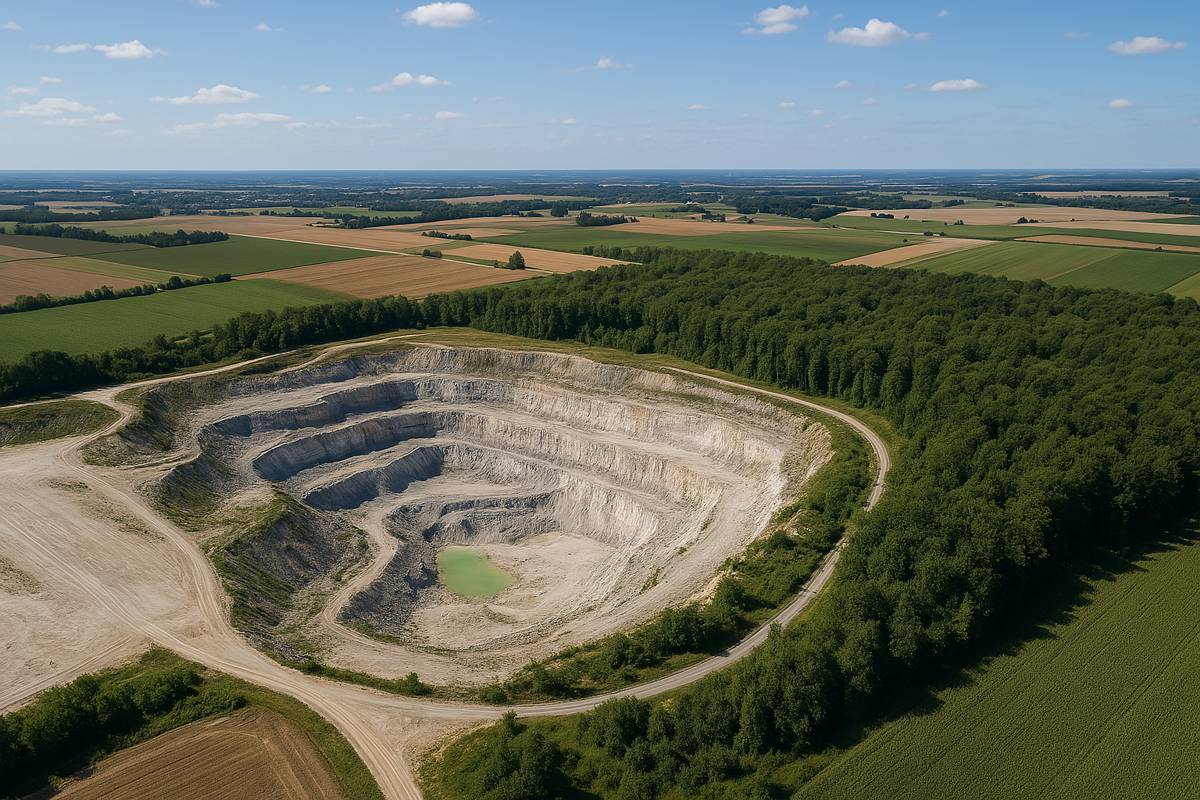France Discovers Hydrogen Natural Reserves Worth $92 Billion
In an astonishing breakthrough for clean energy, French researchers have uncovered an enormous natural hydrogen reserve beneath the Moselle region, estimated to weigh around 46 million tonnes. Valued at an eye-watering $92 billion, this hidden treasure might just propel France to the forefront of a global hydrogen revolution.
Dubbed “white hydrogen,” this naturally occurring resource distinguishes itself from its greener and greyer cousins because it’s generated organically underground, requiring no complex or costly industrial production processes. Unlike grey hydrogen—produced from fossil fuels—or green hydrogen—which needs renewable energy for electrolysis—white hydrogen offers the promise of low-cost, carbon-free energy.
Transforming Global Energy Markets
The scale of this discovery is staggering; if successfully tapped, the Moselle reserve alone could supply over half of today’s global grey hydrogen output. Imagine cutting that hefty carbon footprint overnight! This isn’t just a win for France; it could significantly reshape international energy policies, providing a blueprint for sustainable energy independence and significantly cutting down global fossil fuel reliance.
Moreover, the economic opportunities are substantial. Jobs in extraction, infrastructure development, and technology could inject fresh life into local economies, creating long-term employment stability. Additionally, it positions France as a dominant player in future energy geopolitics, enhancing national security through reduced dependence on imported fuels.
White Hydrogen: Why It’s Different
The appeal of white hydrogen is in its simplicity and eco-friendliness. Traditional hydrogen production methods come with environmental strings attached. Grey hydrogen, responsible for approximately 70% of global production, emits significant greenhouse gases due to its fossil fuel origins. Even green hydrogen, though carbon-free, demands extensive renewable energy infrastructure, raising the costs and slowing wider adoption.
Natural hydrogen sidesteps these issues entirely, emerging directly from geological processes. According to scientists from GeoRessources at the University of Lorraine, who led this ground-breaking research: “white hydrogen is essentially carbon-neutral from extraction to usage, making it a game-changer in our fight against climate change.”
Challenges and Next Steps
While optimism abounds, the researchers urge caution, emphasizing that thorough exploration and rigorous assessments are essential. Sustainable and safe extraction methods are still under study. Concerns around environmental safety, infrastructure compatibility, and long-term extraction viability must be addressed comprehensively.
France’s government and private industry are likely to accelerate investments into this promising sector, ensuring the appropriate infrastructure and regulatory frameworks are rapidly developed.
As Professor Isabelle Moretti of the University of Pau and Pays de l’Adour explained in a recent statement: “It’s critical that we continue research to better understand these underground reservoirs and to devise safe extraction techniques.”
The Wider Global Impact
This discovery isn’t just a boon for France. It potentially opens doors for similar finds globally, prompting other countries to rethink their hydrogen strategies. Natural hydrogen could redefine international energy collaboration, forging new alliances based on energy production rather than traditional geopolitical tensions related to fossil fuel distribution.
This significant find may also fast-track the shift toward hydrogen fuel technologies across various industries—especially transport and heavy manufacturing—where hydrogen’s versatility as a clean energy source is desperately needed to meet stringent international climate targets.
International Reactions and Market Movements
Unsurprisingly, international markets and investors reacted swiftly. Companies specialising in hydrogen technology and infrastructure have already seen increased interest, indicating a growing confidence in the hydrogen sector’s future. Analysts predict sustained investment flows, underscoring the transformative economic potential of this discovery.
Furthermore, this find encourages an acceleration in technological innovation, particularly in fuel cells and storage solutions, pushing industries to advance more sustainable methods at lower costs. The discovery in Moselle has set a new bar for energy exploration and promises exciting times ahead for global markets.
A Brighter, Cleaner Energy Future
The discovery in France’s Moselle region is undeniably monumental. If harnessed effectively, it could dramatically alter global energy dynamics, offering a sustainable, economically viable solution to our energy and environmental challenges. As research advances and practical extraction methods develop, white hydrogen could very well emerge as the most significant clean energy breakthrough of the decade.
France has indeed struck hydrogen gold—and the world might never look back.





























